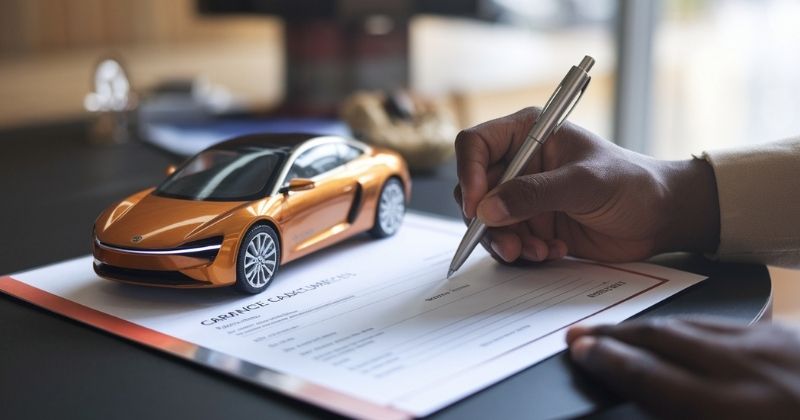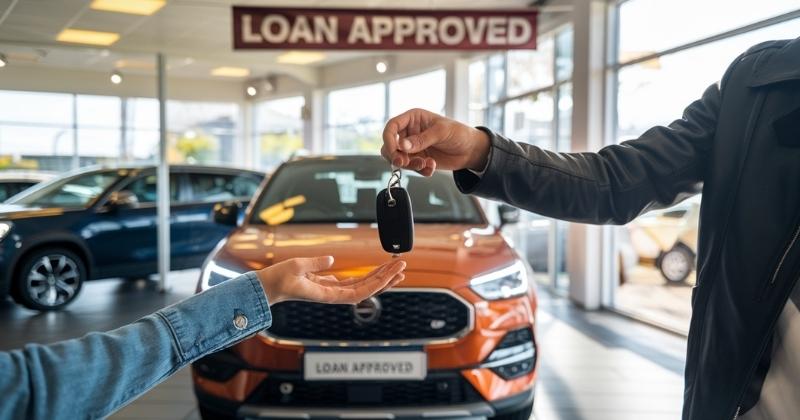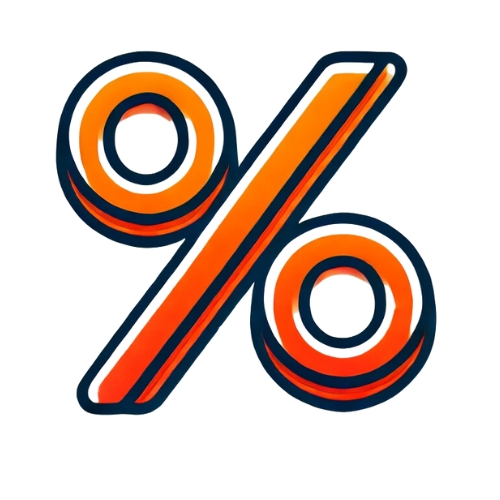
If you are unable to purchase a vehicle outright with cash, you are likely among the majority of buyers who require financing to make the purchase. While auto loans are a common choice, they are not your only option. A personal loan, which can be used for virtually any purpose, including buying a car, might be a more suitable alternative in some cases. However, it is essential to consider the potential disadvantages associated with this approach before deciding whether it is the best option for you.
Key Takeaways
- Personal Loans Offer Flexibility: Personal loans can be used for purchasing a car from both dealerships and private sellers, unlike auto loans that are typically restricted to cars from dealerships.
- Higher Costs and Shorter Terms: While personal loans may offer more flexibility, they generally come with higher interest rates and shorter repayment terms, leading to higher monthly repayments compared to auto loans.
- No Collateral and Down Payment: Personal loans are usually unsecured, meaning there is no risk of repossession, and they do not require a down payment, offering more flexibility in financing a car purchase.
How to Use a Personal Loan to Purchase a Vehicle
Generally unsecured, a personal loan is a form of credit that doesn’t demand collateral. It can be utilised for a wide range of financial needs. This includes consolidating multiple debts into a single repayment, funding home improvement projects, or even purchasing a vehicle.
Personal loans are made available through various sources, such as banks, credit unions, or online lending platforms. Borrowers are required to repay the loan amount over an agreed period, along with interest. The interest rates associated with personal loans can vary significantly depending on the lender and the borrower’s credit profile. Additionally, some lenders may impose extra charges, such as processing or administration fees.
While similar in structure, auto loans have distinct differences compared to personal loans. Auto loans are classified as secured loans, which means they are backed by collateral. In this case, the vehicle being purchased serves as the collateral. If repayments are not met, the lender has the legal right to repossess the vehicle to recover the outstanding amount. Furthermore, auto loans are specifically designated for purchasing vehicles and often come with restrictions. For instance, many lenders will only approve auto loans for cars that are less than 10 years old.
Deciding between personal loans and car financing can be tricky, especially with varied interest rates and terms. Learn the key differences between these two options and how they impact your financial planning in Personal Loan vs. Car Finance in South Africa

When is Buying a Car with a Personal Loan a Practical Choice?
Purchasing from a Private Seller
If you are interested in a car being sold by a private individual but lack the upfront funds, a personal loan might be an appropriate option. Ensure that you can meet the repayment terms of the loan, as failing to repay an unsecured loan could lead to significant consequences, such as wage garnishment, legal action, and a negative impact on your credit record.
While some vehicle lenders offer private party loans, these can be less common and often come with higher interest rates. Additionally, auto loans designed for purchases from private sellers may impose restrictions, such as mileage limits or minimum loan amounts. Personal loans, on the other hand, generally do not have such conditions, making them more flexible in this scenario.
Buying a Car Outside Traditional Options
Most standard auto loans are tailored for new or used cars that are less than 10 years old. If you are considering a vehicle that falls outside this category—such as a classic car or a unique, exotic vehicle—a standard auto loan might not be available. Although some lenders specialise in financing for classic or exotic cars, you may find that a personal loan offers better terms, depending on your financial circumstances.
Avoiding the Need for a Down Payment
Auto loans often require a down payment, especially if your credit rating is not exceptional or if there are no special promotions available from the dealership. With a personal loan, you have the advantage of bypassing this requirement and can purchase the car without needing to put down any money upfront. This flexibility could be useful if you prefer to avoid immediate out-of-pocket expenses.
Discover insights into average interest rates and tips for securing the best deals in Good Interest Rate for a Car. This knowledge can help you evaluate whether a personal loan is competitive compared to specialized car finance.
About Arcadia Finance
Get your loan easily through Arcadia Finance. No application fees and a choice of 19 trusted lenders, all compliant with the National Credit Regulator of South Africa. Benefit from a smooth, personalized borrowing process.
Which is Better: a Car Loan or a Personal Loan? 5 Factors to Consider
Payment Terms
Opting for an extended loan duration might seem appealing due to smaller monthly payments, but it also translates to higher interest payments over time. In South Africa, personal loans typically have a maximum term of 60 months, whereas car loans can extend up to 72 months. Would you prefer paying a consistent amount for a car long after the novelty has faded, or would you rather choose a shorter term with higher payments to settle the debt quickly?
To illustrate, consider a comparison between three-year and five-year finance plans using a generic auto loan calculator. For a three-year term, the monthly payment might be significantly higher, but the overall interest paid is less. Conversely, a five-year term reduces the monthly burden but increases the total cost due to prolonged interest accumulation.
Interest Rates
The interest you pay is essentially the cost of borrowing for your vehicle, influenced by the vehicle’s price and your financial standing. Typically, personal loans carry higher interest rates than car loans. However, secured personal loans might offer lower rates. It’s wise to prefer loans with simple interest over those calculating compound interest.
Interest calculations for car loans might include both add-on and effective rates. The add-on rate is a fixed yearly percentage multiplied by the loan duration, whereas the effective rate reflects the true cost after principal reductions.
New vs. Used Car
Car loans in South Africa are often tailored for new or Certified Pre-Owned vehicles. When considering a used car, you might need to negotiate directly with the seller as not all car loans cover secondhand vehicles. If a suitable car loan isn’t available, a personal loan might be a viable alternative.
Credit Score
Applying for a personal loan will prompt lenders to review your credit score to assess your repayment reliability. If your credit score is subpar, you may find it easier to secure a car loan than a personal loan, though expect higher interest rates. It’s advisable to address any outstanding debts to improve your credit profile before applying.
The Repossession Question
To minimize the risk of loan default, it’s crucial to understand the consequences. Failing to meet car loan payments can lead to vehicle repossession by the lender. Therefore, shopping around for the best loan terms that fit your budget is essential, ensuring that buying a car doesn’t overextend your financial capabilities.
Learn the next steps to take and read What to Know When Applying for a Personal Loan for tips to improve your approval odds.
Benefits of Using a Personal Loan to Purchase a Car
Advantages
- Greater Flexibility: Auto loans are restricted to dealership purchases and often cap at the car’s price. Personal loans, in contrast, offer more freedom; they can cover any car purchase, even from private sellers, and may exceed the purchase price. But remember, borrowing more than needed can cause financial strain.
- No Down Payment Required: Many auto loans demand a down payment, especially under certain credit conditions, to secure favorable rates and avoid negative equity. Personal loans skip the down payment, offering flexibility and an easier start, especially for those without upfront cash.
- No Collateral Needed: Most personal loans are unsecured, so the car won’t face repossession risk if payments are missed. Still, consider your ability to repay to avoid credit damage and future financial hurdles.
Disadvantages
- Higher Interest Rates: Personal loans usually charge higher interest rates than auto loans, making them costlier, even for those with good credit.
- Increased Monthly Repayments: With shorter repayment terms than auto loans, personal loans require higher monthly payments, despite reducing overall interest costs.
- Limited Options for Poor Credit: Without using the car as collateral, personal loans have tougher credit requirements, posing challenges for those with lower scores and often resulting in high-interest rates for bad credit loans.
Interest Rates and Repayment Terms

Interest Rates
A significant distinction between vehicle finance and personal loans is found in the structure of interest rates. Vehicle finance generally offers lower interest rates because the loan is secured by the vehicle itself. This arrangement reduces the lender’s risk, as they can repossess the vehicle if the borrower fails to make repayments. In contrast, personal loans are usually unsecured, meaning no collateral is required. This lack of security increases the lender’s risk, which is often reflected in higher interest rates.

Repayment Terms
Vehicle finance typically offers longer repayment periods, commonly ranging from 12 to 72 months. These extended terms often result in lower monthly instalments, which can make budgeting more manageable. However, the trade-off is that a longer repayment period increases the total interest paid over the loan’s duration. Personal loans, on the other hand, generally have shorter repayment periods, typically between 12 and 60 months. While this can result in higher monthly payments, the shorter terms mean borrowers pay less interest in total.

Comparing Personal Loan Lenders in South Africa for Car Purchases
When considering a personal loan to finance a vehicle purchase in South Africa, it is important to compare the offerings of various lenders. Each lender may offer different interest rates, repayment terms, and eligibility criteria, making it essential to choose the one that best suits your financial situation. Below is a comparison of some of the main types of lenders in South Africa and key factors to consider.
| Lender Type | Interest Rates | Repayment Terms | Eligibility | Additional Fees |
|---|---|---|---|---|
| Banks | Competitive, lower for good credit | Flexible, 12-60 months | Strict, requires good credit and stable income | Initiation, processing, and potential early repayment fees |
| Credit Unions | Lower rates than banks, depending on membership | Flexible, longer loan periods possible | Requires membership, with potential additional conditions | Lower fees compared to banks, but initiation fees possible |
| Online Lenders | Higher rates, especially for unsecured loans | Shorter terms, often higher monthly payments | More lenient, but rates depend on credit score | Possible processing fees |
| Retailers and Dealerships | Higher rates, but promotional offers available | Varies, typically 12-48 months | May have more lenient approval criteria | Processing, initiation fees, or down payment requirements |
| Microfinance Institutions | High rates, due to higher risk lending | Shorter terms, higher monthly payments | Less stringent, easier approval for low-income borrowers | Higher fees and smaller loan amounts |
Conclusion
Using a personal loan to purchase a car in South Africa can be a viable alternative to traditional auto loans, offering flexibility in terms of the vehicle purchase and no requirement for collateral or a down payment. However, it comes with higher interest rates and shorter repayment periods, which can lead to increased monthly repayments. It is important to carefully consider your financial situation, compare different lenders, and weigh the advantages and disadvantages before opting for a personal loan. Depending on the type of car, the lender, and your credit profile, a personal loan could be the right choice for your vehicle financing needs.
Frequently Asked Questions
Yes, personal loans can be used to purchase a car from both dealerships and private sellers, offering more flexibility compared to auto loans, which may have restrictions.
Typically, yes. Personal loans usually come with higher interest rates because they are unsecured, unlike auto loans that are secured by the vehicle being purchased.
No, personal loans do not require a down payment, unlike many auto loans, which often require a significant deposit, especially if your credit score is not high.
Yes, personal loans are a good option for purchasing vehicles that may not qualify for traditional auto loans, such as classic or exotic cars, offering more flexible terms.
The main risks include higher interest rates, shorter repayment terms, and the potential for larger monthly payments. Failure to repay a personal loan could damage your credit score and lead to legal consequences.






